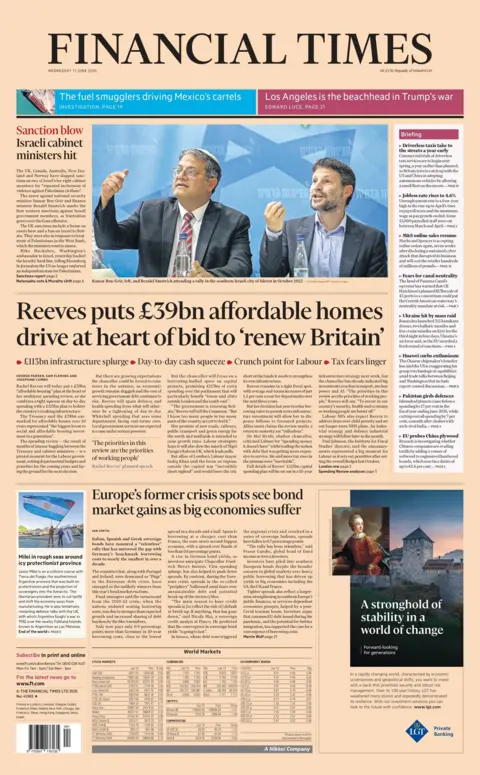In a significant move set to address the persistent housing crisis in the UK, Chancellor of the Exchequer Rachel Reeves has announced a groundbreaking initiative, pledging an investment of £39 billion aimed at creating affordable homes. This initiative, presented in the government’s latest Spending Review, seeks to stimulate the construction of hundreds of thousands of new homes characterized by affordability, effectively putting housing at the forefront of economic strategy.
The announcement of this expansive housing program has drawn considerable media attention, with numerous newspapers featuring the topic prominently on their front pages. The Financial Times heralded the plan as “the biggest boost to social and affordable housing in a generation,” according to statements from the Treasury. The ambitious nature of the proposal aims not just to offer housing solutions but also to foster economic growth in a nation grappling with a cost-of-living crisis.
Chancellor Reeves emphasized that the investment will facilitate not only new home construction but will also yield substantial social benefits. However, the initiative is not free from critique. Shadow Chancellor Mel Stride has raised concerns over potential increases in national debt related to the financing of this housing scheme, predicting inevitable tax increases come autumn. This dynamic encapsulates the ongoing tension between fiscal responsibility and the urgent need for housing solutions, a dilemma faced by governments worldwide.
Amidst these discussions, various media outlets have presented diverse perspectives. The i newspaper portrayed the investment as a significant victory for Deputy Prime Minister and Housing Secretary Angela Rayner, suggesting that the extended timeline for the housing program—shifting from five years to a more ambitious ten—could yield even greater results in addressing the housing shortfall. In contrast, the Daily Mail underscored a sobering statistic: a decline in job vacancies by 250,000 since the Budget announcement last year. This data contradicts the government’s assertions regarding economic recovery and stability, thereby questioning the viability of such extensive spending amidst rising unemployment rates.
Notably, the Times has echoed concerns regarding the National Health Service (NHS), projecting an additional £30 billion allocation in the Spending Review for the NHS yet asserting that it would still fall short of achieving Prime Minister Sir Keir Starmer’s target for waiting lists. This brings to the forefront the ongoing debates related to public healthcare funding alongside housing concerns, as both sectors require urgent investment to meet the expectations and needs of the public.
While the ongoing housing and healthcare discussions dominate the news cycle, other significant occurrences have surfaced in the UK and abroad. The Guardian highlighted the imposition of sanctions by the UK government on two Israeli ministers accused of inciting violence against Palestinians. Such geopolitical ramifications reflect the complex international relationships that often intersect with domestic policy discussions.
In a more localized context, the Daily Express has called for further financial adjustments, urging Reeves to reconsider the inheritance tax changes that could significantly impact rural families, especially in the farming sector. The ongoing dialogue surrounding tax policy illustrates the broader economic challenges that extend beyond housing initiatives, examining how various demographics may be affected by financial reforms.
Amidst these varied narratives, community unrest has surfaced in Northern Ireland, where violence and protests have newsrized as local sentiments escalate. The Belfast Telegraph reported on how an attempt to protect specific communities through identification stickers highlights the fear and tension in society amid such unrest.
Finally, humor finds its way into news reporting as the Sun raised a lighthearted query regarding the diminishing fleet of the celebrated Red Arrows, revealing concerns that the iconic RAF team may soon lack sufficient aircraft to perform their legendary aerial displays.
In conclusion, the £39 billion affordable housing initiative underscores a multifaceted approach toward tackling housing shortages and stimulating economic growth while revealing the contrasting challenges of public health and economic policies within the broader context of UK governance and societal welfare. The unfolding reactions to these policies will undoubtedly influence both political and public perceptions in the months to come.



